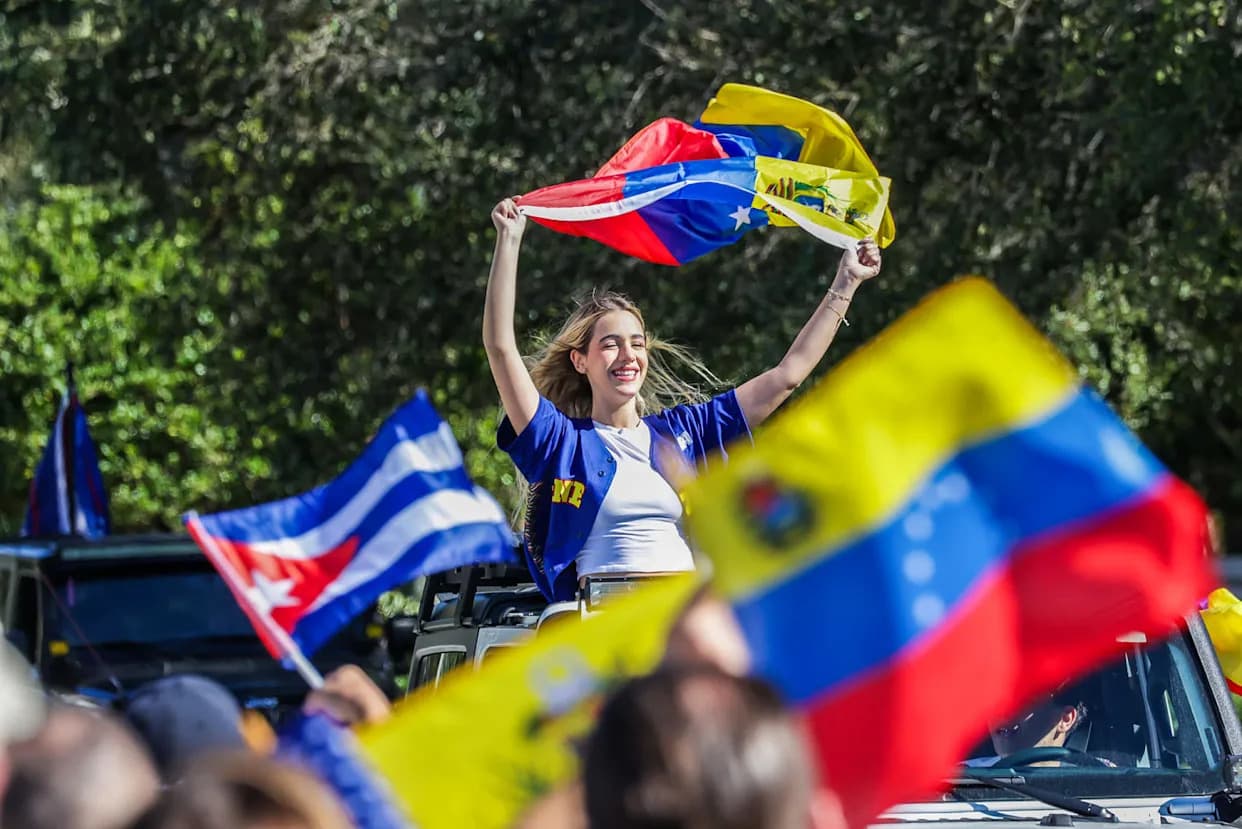Human Rights Watch and Cristosal published an 81-page report alleging systematic torture and other grave abuses of Venezuelans deported from the U.S. to El Salvador's CECOT maximum-security prison. The report profiles 40 men held in near-total isolation for about four months and finds that only about 3% had U.S. convictions for violent crimes while roughly half had no U.S. record. The groups call the treatment a pattern of abuse rather than isolated incidents and urge an independent U.S. Department of Justice investigation. They warn that U.S. transfers and payments to El Salvador risk complicity in human rights violations.
Report: Venezuelans Deported to El Salvador's CECOT Were Subjected to Systematic Torture

"You Have Arrived in Hell": Human Rights Groups Accuse Salvadoran Prison of Systematic Abuse
An 81-page report released by Human Rights Watch (HRW) and regional rights group Cristosal documents alleged torture and other serious abuses of dozens of Venezuelan nationals who were deported from the United States to El Salvador and placed in the country's maximum-security CECOT facility, described by the authors as a "terrorism confinement" mega-prison.
The study focuses on the experiences of 40 men who spent roughly four months in near-total incommunicado detention earlier this year. These men were among 252 Venezuelans flown to El Salvador in March and April after U.S. authorities and Salvadoran officials alleged many belonged to Tren de Aragua, an organized crime group that the U.S. has designated a foreign terrorist organization.
According to interviews collected by HRW and Cristosal, detainees reported being beaten immediately upon disembarkation, confined in inhumane cell conditions, given inadequate food, denied adequate hygiene and sanitation, and provided limited medical care and no access to education or recreation. Three detainees reported sexual violence; several others described severe beatings that appeared to be reprisals for speaking with International Committee of the Red Cross (ICRC) delegates who visited CECOT in May.
"The brutality and repeated nature of the abuses also appear to indicate that guards and riot police acted on the belief that their superiors either supported or, at the very least, tolerated their abusive acts," HRW and Cristosal wrote.
The groups emphasize that the reported mistreatment was not isolated misconduct by a few rogue officers but a systematic pattern of abuse "designed to subjugate, humiliate, and discipline detainees." The report challenges official claims that the deported men were terrorists, noting that only about 3% had U.S. convictions for violent or potentially violent offenses, roughly half had no U.S. criminal record, and many had clean records in Venezuela or elsewhere in Latin America.
HRW and Cristosal further note that concerns about human rights abuses in Salvadoran prisons were longstanding and well-documented, including criticism from the U.S. State Department about security and law-enforcement practices. The report says the Trump administration nevertheless transferred Venezuelans to El Salvador — including dozens who were identified as asylum seekers — and paid millions of dollars to the Salvadoran government as part of cooperation efforts.
Juanita Goebertus, director of HRW's Americas division, said the transfers and payments raise questions of U.S. responsibility and urged that U.S. policy not place people at risk of torture. Cristosal executive director Noah Bullock accused the U.S. administration of using the Salvadoran prison system as "a prop in a theatre of cruelty," saying officials sought to send a brutal message and may not have anticipated how extreme the abuse would be.
HRW and Cristosal called for an independent investigation by the U.S. Department of Justice and warned that U.S. involvement in these transfers draws troubling parallels with past U.S.-linked abuses, including those documented at Abu Ghraib during the Iraq War.
Note: All allegations in the report are based on interviews, documentation, and the organizations' analysis. The Salvadoran government and U.S. authorities have responded variably to such claims; independent investigations would be required to substantiate individual criminal responsibility and institutional failures.
Help us improve.


































